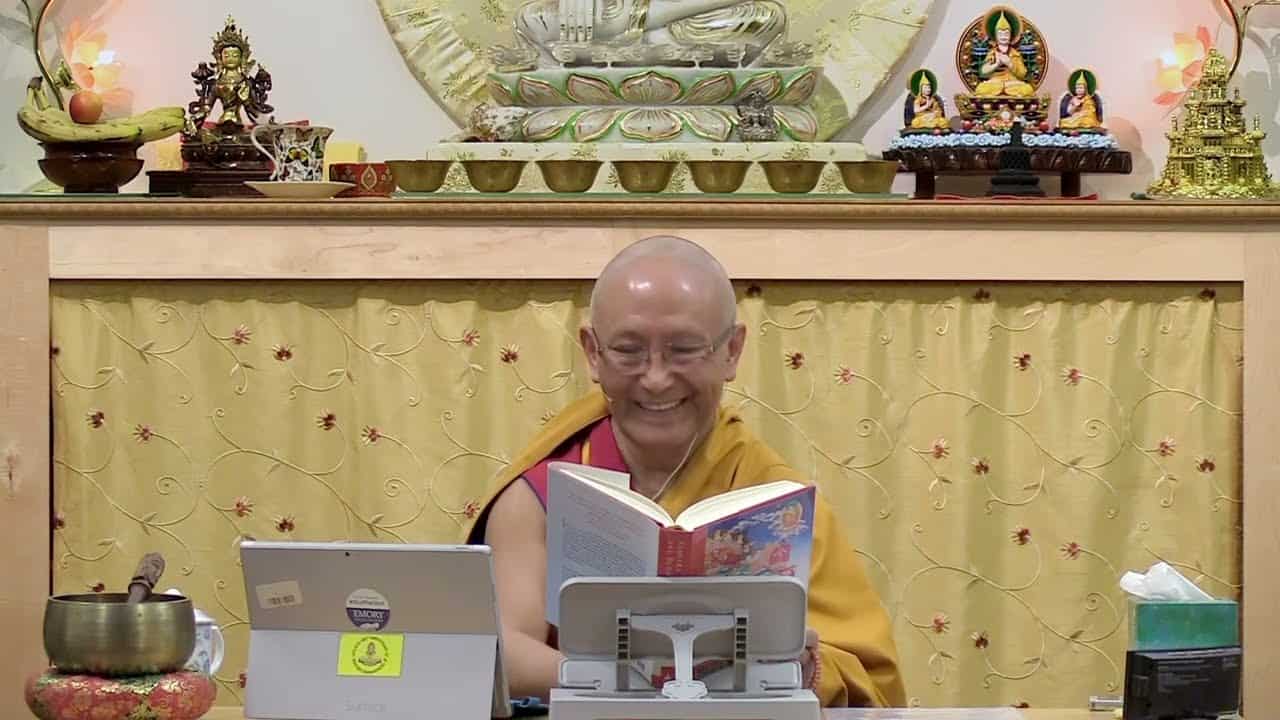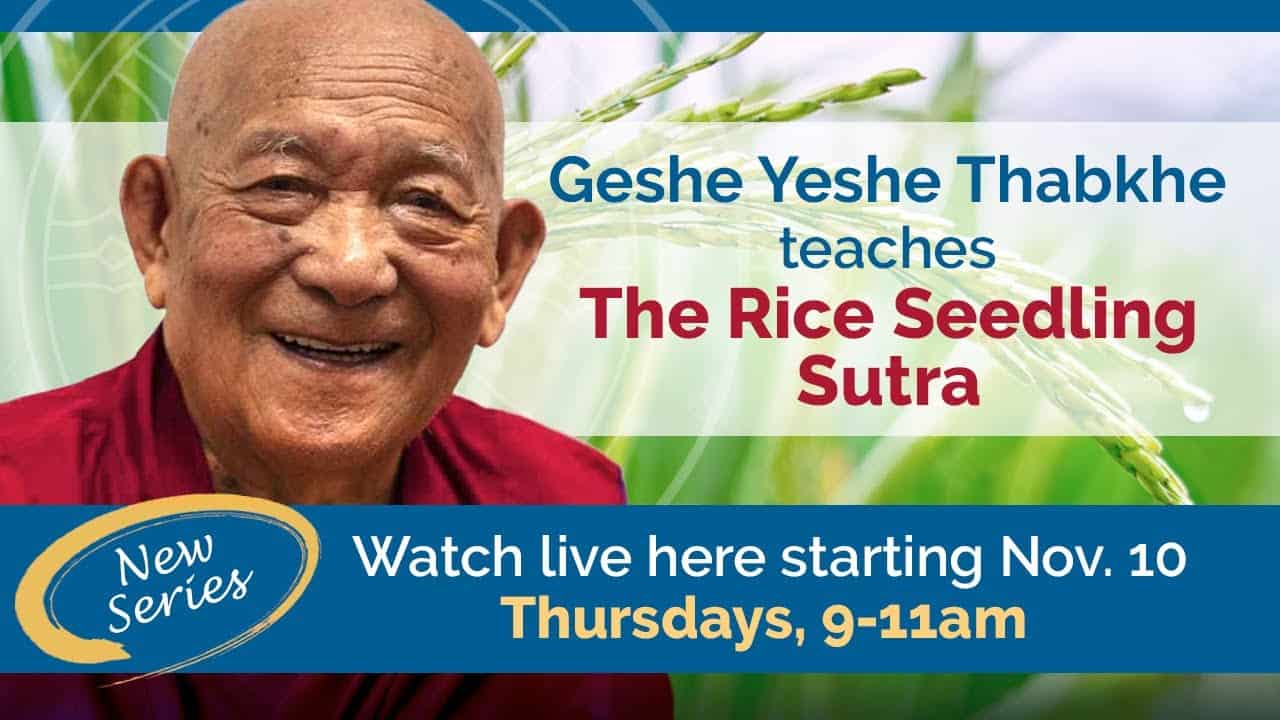Review of Chapter Six: Verses 22-34
119 Engaging in the Bodhisattva's Deeds
Part of an ongoing series of teachings based on Shantideva’s classic text, Bodhisattvacharyavatara, often translated as Engaging in the Bodhisattva’s Deeds. Venerable Thubten Chodron also refers to the outline of the commentary by Gyaltsab Dharma Rinchen and the commentary by the Abbot Dragpa Gyaltsen.
- Verse 22 and 23: Afflictions and harmful behavior arise due to causes and conditions
- Verse 24: The fortitude of not responding to harm from others
- Verse 25: Transforming how we view those who harm to develop the fortitude of not retaliating
- Verse 26 and 27: Products have no intention to be produced
- Verse 28: Permanent phenomena cannot change or produce
- Verse 29 and 30: A permanent self could not change or perform an action
- Verse 31: Looking at causality to decrease anger
- Verse 32: Anger can be restrained without there being an inherently existent person
- Verse 33: Remaining happy despite others committing improper actions
- Verse 34: Understanding that sentient beings suffer under the control of causes and conditions
- Meditation on understanding how anger arises from causes and condtions
119 Engaging in the Bodhisattva’s Deeds: Review Chapter Six: Verses 22-34 (download)
Venerable Thubten Losang
Ven. Losang became interested in Buddhism during the 1990s and sporadically read books on Buddhism and practiced sitting meditation. He first came to Sravasti Abbey in April 2013 for a Sharing the Dharma Day. After that, he began to visit the Abbey almost every month. In the summer of 2014, he spent 10 days of every month at the Abbey to work in the forest and joined in the Exploring Monastic Life program. Receiving teachings from a qualified teacher (Ven. Chodron), being around other practitioners, being guided and inspired by the monastic community, and establishing a regular meditation schedule turned his sporadic and confused spiritual seeking into a serious and consistent practice. Ven. Losang moved to the Abbey in December 2014 and took the anagarika precepts the following month. He received śrāmaṇera (novice) ordination on August 10, 2015 and received full ordination in Taiwan in 2017.


